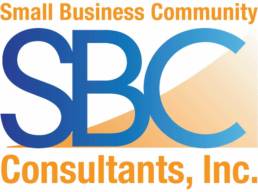As a business consultant, the first skill that I learned when I first began working in the industry is how to develop a business plan. I learned that if done right, the business plan will be the most effective tool in achieving business goals and it will act as a road map for your business.
The following highlights important information a proper business plan should cover:
1. Executive Summary
- A summary of the following longer report.
2. Use Of Funds
- If requesting for financing or an investment, this section will lay out in detail how much is being requested and what it will be used for.
3. Investor Proposition
- If requesting an investment you will need to write the proposition you are proposing, which will include the rate of return.
4. Company Ownership
5. Company Location
6. Exit Strategy
7. The New Concept
- In this section, you will need to describe what the industry is currently doing and how your concept will be changing the industry.
8. Departments and Services
- In this section, you will need to explain the different departments and services in detail (what are you selling the customer?).
9. Market Analysis Summary
- Researching the market. Your goal is to enter the market and share the piece of the pie with your competitors. Knowing how big the industry is and the per capita spending is very important You will also need to identify your demographics in this section as well.
10. Market Segmentation
- This section will need to explain the segments of the market in which you anticipate will buy your product and/or service.
11. Market Needs
- What is the market lacking that you are going to provide?
12. Industry Analysis
- How large is your market? What has happened to the industry in the past couple of months? What do you think the industry will do in the future and why? What has the trend been for the industry?
13. Competitive Comparison
- Identify your competitors. Who they are and what do they do? Conduct a SWOT analysis
14. Strategy and Implementation Summary
- In this section, you will be identifying your goals. Label as short term and long term goals. Usually shot term goals will range from the day you start until the end of the first year. Long term goals will be any goal you have after the first year. Additionally, you will also have immediate goals. What you must accomplish before you open your doors are your immediate goals. All of the aforementioned goals are crucial to identify pre-startup.
15. Marketing Strategy
- Identify the different marketing strategies you will implement. This includes but is not limited to social media, print advertising, and online advertising. Be clear and specific (how much will each cost?).
16. Management Summary and Gaps
- Identify the key players in your business. Who will be running the day to day operations of the company? If you plan on hiring new employees in the future, identify the key positions needed and when you anticipate on hiring them.
17. Financial Projections
- Financial projections should be used as a goal. Identify how much money you would like to make per year or per quarter. Once completed, you will have a good idea of how much you need to sell of one product.
